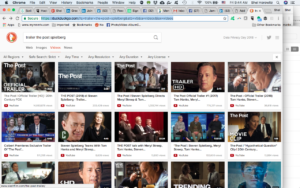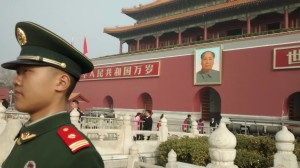Is Stalin’s Ghost Running Florida’s Schools?
No—but he may as well be. When I was a kid in the 1960s, we were told that Soviet schools (especially during the Stalin years) were places of indoctrination, not learning. They were propaganda factories churning out children whose world view was all about how great our then-enemy (and again enemy, since it invaded Ukraine) was—who would grow up to be dupes, unquestioning of their country’s moral, economic, and military superiority, etc. The same was true—and this we know as fact—of the schools the Nazis ran.
Of course, US schools, and the schools of pretty much any country, have also served a propaganda function. Schools are designed to raise children who would be complicit in or even participate in such things as the US’s involvement in numerous imperialist wars. Those wars are attempts to prop up a deadly version of capitalism whose place in developing countries was to exploit the resources—and not to worry about how many of the locals were killed or brutalized in the process. And again, the US was not alone. Ask in India about the Brits, in Congo about the Belgians, in South Africa about the Dutch, in Armenia about the Turks, in First Nations in Canada and the US about the history of their relations with White-run governments.
These days in most of the US and in other democracies, a more nuanced version of history is taught. History usually recognizes the moments where a country went astray, looks at the reasons, and at least casually discusses the consequences.
But in Florida, starting this month, that is no longer true. Heather Cox Richardson devoted her newsletter this morning to exploring the white supremacist fantasy that Florida now calls history and requires its teachers to teach. And I call the Florida curriculum a total distortion of truth. Read her column! It’s crucial to understand what’s going on in the battle for our children’s minds and souls.
Of course, this rogue state under Ron DeSantis has had a problem with truth telling for a while. It has a nasty habit of censoring anything that makes someone—at least a conservative White, cis, hetero, and male someone with no disabilities—a little uncomfortable. This is the state where it’s illegal for a teacher to mention LGBT folks, let alone that we are normal and part of the diversity that makes our country great. (I identify as bisexual so I include myself in that community.) Where it’s illegal for a teacher to point out that systemic racism still exists in the US. Where book banning has taken more than 300 books out of classrooms and libraries. And where DeSantis forced curriculum and management changes at a well-known progressive college in the state system that resulted in another progressive college, an expensive private school near me, offering to accept students from there at the same low tuition cost they’d been paying (and several accepted).
Unfortunately, while its approach is extreme, Florida isn’t alone. Other states are passing similar laws in a foolish counterrevolution that will dull the ability of its students to think, to make ethical choices, and ultimately, to show leadership. In addition to the obvious consequences of attacking human rights of those other than conservative White, cis, hetero, and male, this regressive path, in my opinion, leads to intellectual stagnation and the US falling behind other countries in the quality of our science, invention, and achievement. So in both moral and practical terms, it’s a disaster.
Fight for our right as a nation to have a REAL education! Support teachers and librarians! And most importantly, vote the censors who would drum critical thinking out of our children and turn them into compliant automatons out of office!


